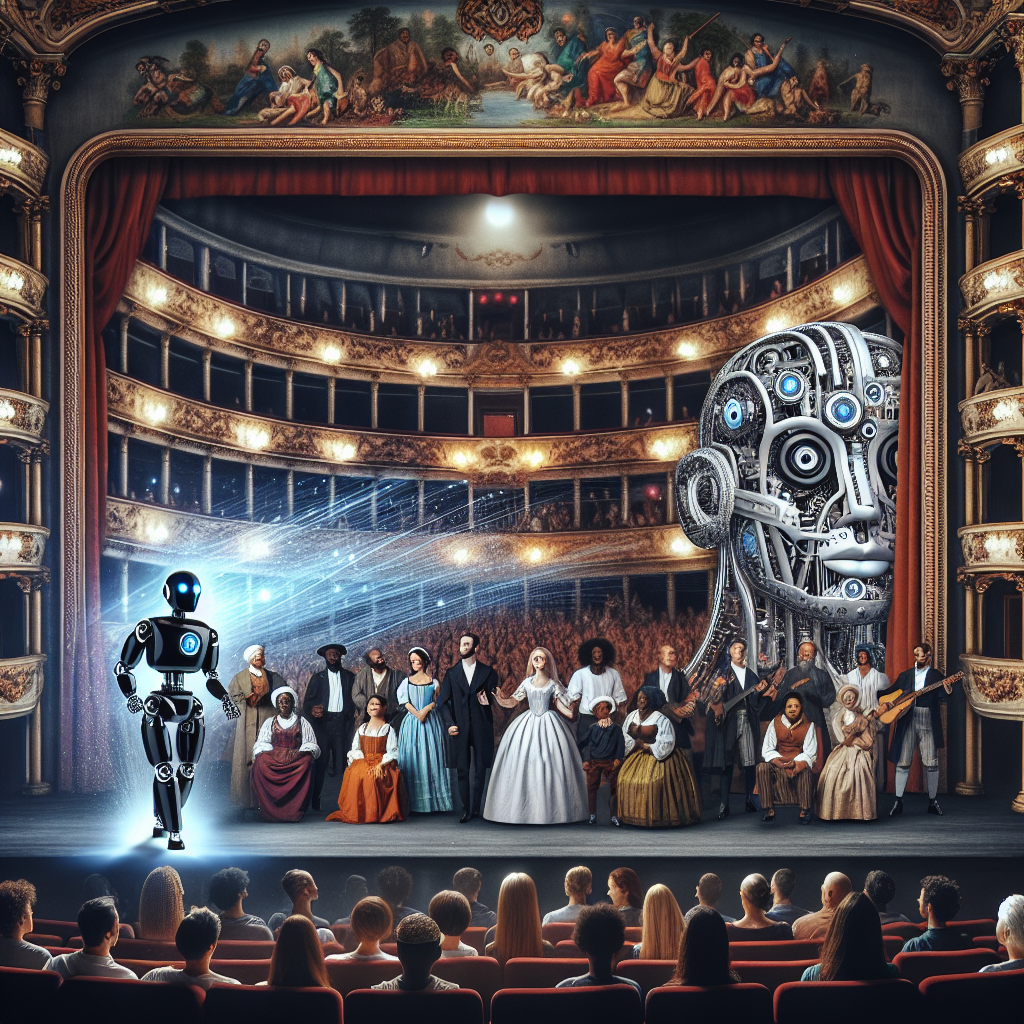Artificial intelligence (AI) has been making waves in various industries, from healthcare to finance to entertainment. One area where AI is also making a significant impact is in the world of theater. AI technology is being used to enhance performances, create immersive experiences, and even help artists in their creative process. In this article, we will explore how AI is changing the stage and what this means for the future of theater.
AI in Theater: Enhancing Performances
One of the ways in which AI is being used in theater is to enhance performances. AI technology can be used to create stunning visual effects, realistic soundscapes, and even interactive experiences for the audience. For example, AI-powered lighting systems can create dynamic lighting effects that respond to the actors’ movements on stage, creating a more immersive and engaging experience for the audience.
AI can also be used to create realistic soundscapes that immerse the audience in the world of the play. By using AI algorithms to analyze the actors’ voices and movements, sound designers can create more realistic and dynamic sound effects that complement the action on stage.
In addition, AI technology can be used to create interactive experiences for the audience. For example, AI-powered chatbots can be used to engage with audience members before, during, and after the performance, providing them with information about the play, the actors, and the production process. This can help to create a more personalized and engaging experience for the audience, making them feel more connected to the performance.
AI in Theater: Creating Immersive Experiences
Another way in which AI is changing the stage is by creating immersive experiences for the audience. AI technology can be used to create virtual reality (VR) and augmented reality (AR) experiences that transport the audience into the world of the play. For example, audience members could wear VR headsets during the performance and be transported to a different location or time period, experiencing the play in a whole new way.
AI can also be used to create interactive installations that complement the performance. For example, AI-powered interactive projections could be used to create a virtual set that responds to the actors’ movements on stage, creating a more dynamic and engaging experience for the audience.
In addition, AI technology can be used to create personalized experiences for the audience. By analyzing the audience members’ preferences and behaviors, AI algorithms can create custom experiences that cater to their individual tastes and interests. This can help to create a more engaging and memorable experience for the audience, making them more likely to return for future performances.
AI in Theater: Assisting Artists in the Creative Process
AI technology is also being used to assist artists in the creative process. For example, AI algorithms can be used to analyze scripts and provide insights into character development, plot structure, and dialogue. This can help playwrights and directors to refine their scripts and create more compelling and engaging plays.
AI can also be used to assist actors in their performances. For example, AI-powered virtual coaches can provide actors with feedback on their performances, helping them to improve their acting skills and techniques. This can help actors to deliver more authentic and compelling performances, enhancing the overall quality of the production.
In addition, AI technology can be used to assist set designers in creating more immersive and realistic sets. By using AI algorithms to analyze the script and the director’s vision, set designers can create sets that accurately reflect the world of the play, enhancing the audience’s experience and immersion in the performance.
FAQs
Q: How is AI technology being used in theater?
A: AI technology is being used in theater to enhance performances, create immersive experiences, and assist artists in the creative process. AI-powered lighting systems, soundscapes, and interactive experiences are just a few examples of how AI is changing the stage.
Q: How can AI technology enhance performances in theater?
A: AI technology can enhance performances in theater by creating stunning visual effects, realistic soundscapes, and interactive experiences for the audience. AI-powered lighting systems, soundscapes, and chatbots are just a few examples of how AI is enhancing performances in theater.
Q: How can AI technology create immersive experiences in theater?
A: AI technology can create immersive experiences in theater by creating virtual reality (VR) and augmented reality (AR) experiences that transport the audience into the world of the play. AI-powered interactive installations and personalized experiences are also examples of how AI is creating immersive experiences in theater.
Q: How can AI technology assist artists in the creative process?
A: AI technology can assist artists in the creative process by analyzing scripts, providing insights into character development, plot structure, and dialogue, and helping actors improve their performances. AI-powered virtual coaches and set design assistance are just a few examples of how AI is assisting artists in the creative process.
In conclusion, AI technology is changing the stage in exciting and innovative ways. From enhancing performances to creating immersive experiences to assisting artists in the creative process, AI is transforming the world of theater and opening up new possibilities for artists and audiences alike. As AI technology continues to evolve, we can expect to see even more groundbreaking innovations in the world of theater, creating new and exciting opportunities for artists and audiences to connect and engage with each other.

